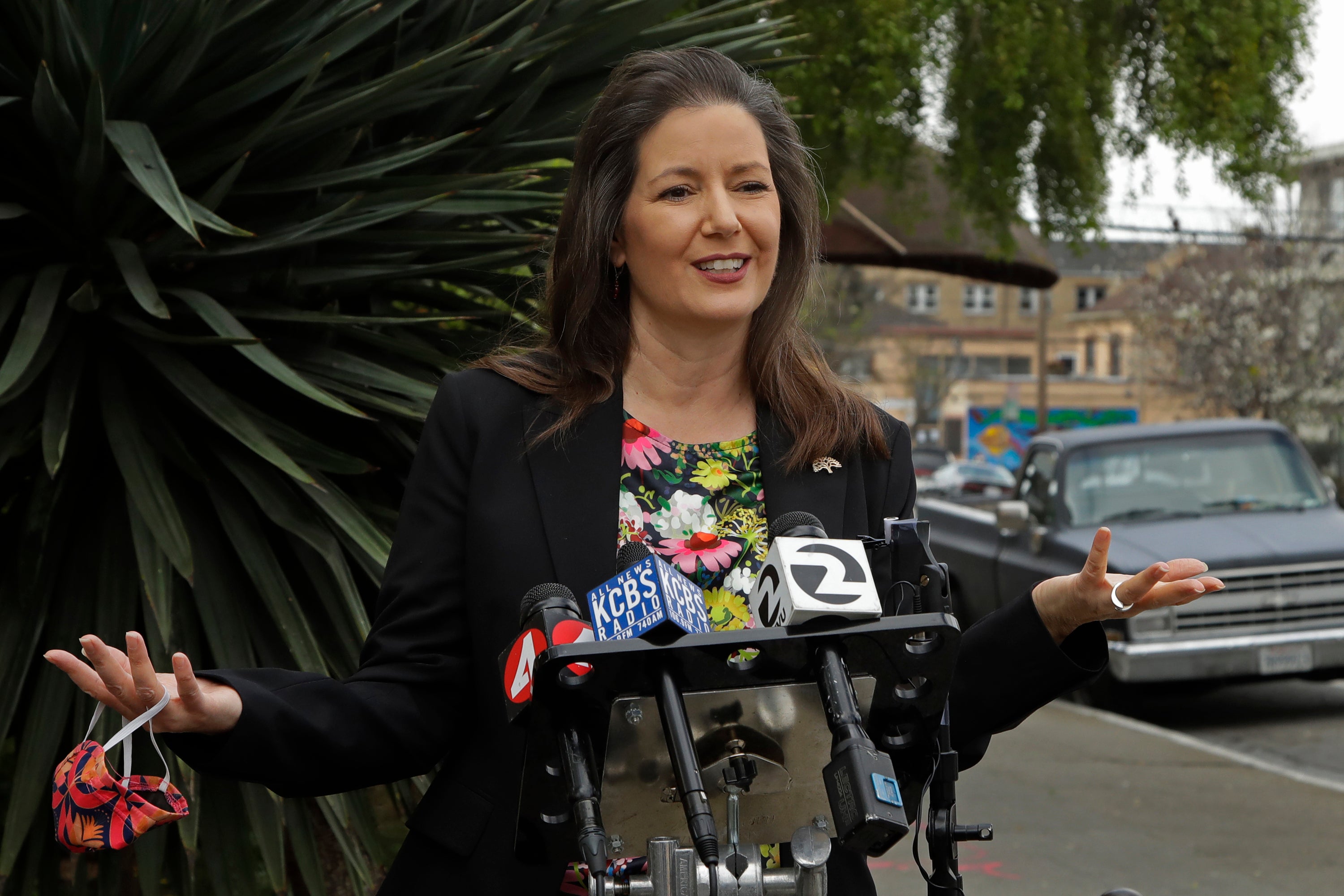Oakland launches guaranteed pay plan for low-income people
The mayor of Oakland, California has announced a privately funded program to give low-income families of color $500 a month with no rules on how to spend it

The mayor of Oakland California on Tuesday announced a privately funded program that will give low-income families of color $500 per month with no rules on how they can spend it,
The program is the latest example of “guaranteed income," an idea that giving poor people a set amount of money each month to ease the stresses of poverty that contribute to poor health and hinder their ability to find full-time work.
The idea isn't new, but it's gotten a lot of attention lately after a some mayors have launched small, temporary programs across the country in a coordinated effort to convince Congress to adopt the program nationally.
The first program was launched three years ago in Stockton California, led by former Mayor Michael Tubbs. Tubbs has said about six similar programs in other cities should be up and running by the summer.
“We have designed this demonstration project to add the body of evidence, and to begin this relentless campaign to adopt a guaranteed income federally,” Oakland Mayor Libby Schaaf said.
The Oakland Resilient Families program has so far raised $6.75 million from private donors including Blue Meridian Partners, a national philanthropy group.
Across the San Francisco Bay, the Marin County Board of Supervisors voted Tuesday to participate in its own two-year guaranteed income project.
Oakland's project is significant because it is one of the largest efforts in the U.S. so far, targeting up to 600 families. And it is the first program to limit participation strictly to Black indigenous and people of color communities.
The reason: White households in Oakland on average make about three times as much annually than black households, according to the Oakland Equity Index. It's also a nod to the legacy of the Black Panther Party, the political movement that was founded in Oakland in the 1960s.
“Guaranteed income has been a goal of the Black Panther platform since its founding,” said Jesús Gerena, CEO of Family Independence Initiative, which is partnering with the program in Oakland. “Direct investment in the community in response to systemic injustices isn't new.”
The idea of a guaranteed income dates to the 18th century. The U.S. government experimented with it in the 1960s and 1970s when Republicans Donald Rumsfeld, later a defense secretary, and Dick Cheney, the future vice president, oversaw four programs across the country during the Nixon administration.
Those studies concluded the money did not stop people from working, causing Nixon to recommend expanding the program. But it never got through Congress.
Decades later, proponents are trying again, only this time it's led by progressive mayors. An independent review found that after one year of getting the money, 40% of recipients had full-time jobs compared to 28% before the program started.
“The fact that mayors are piloting (guaranteed income programs), using political capital to raise capital to allow their constituents to have basic necessities, is a policy failure," Tubbs said. “It's an admission that we need to do more.”
It's unclear what a national guaranteed income program would look like. A proposal by former Democratic presidential candidate Andrew Yang could have cost $2.8 trillion per year.
A form of guaranteed income could take effect for many parents this year as part of the latest federal stimulus package. Congress expanded the child tax credit, with the goal of giving many parents monthly payments of up to $300 per month. Those payments are temporary.
In California, a proposal by Assemblyman Evan Low to give $1,000 a month to adults with certain incomes could cost up to $129 billion annually — more than half the state's general fund budget — paid for by a new 1% tax on incomes above $2 million.
Critics, including labor unions, worry such expensive programs could force the elimination of other safety net programs, like social security and food stamps. But Schaaf said she she is unapologetic that “the social safety net programs must remain.”
“We believe that those safety net programs should not go away, but should be supplemented with unconditional cash that gives families the dignity and flexibility to meet their needs,” she said.
To be eligible, people must have at least one child under 18 and income at or below 50% of the area median income — about $59,000 per year for a family of three.
Half the spots are reserved for people who earn below 138% of the federal poverty level, or about $30,000 per year for a family of three.
Participants will be randomly selected from a pool of applicants who meet the eligibility requirements.
Bookmark popover
Removed from bookmarks